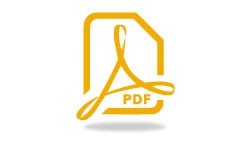Student Absence Declaration
Information for students
In January 2018, the Student Declaration of Absence Form was introduced in select courses to replace sick notes for absences of three days or fewer that result in missed or late academic requirements.
The Student Declaration of Absence Form functions the same as a sick note. Your instructor makes the decision on whether they will arrange alternate coursework, tests, etc.
You must check with your instructor(s) or refer to your faculty, college, school, instructor-specific, or course-specific syllabi and guidelines, and work-integrated learning handbook policies to see if the self-declaration of absence option is available to you.
The submission of the form does not provide an automatic exemption from any academic requirements that were missed or late during an absence. Any alternate coursework arrangements for missed or late academic requirements are at the discretion of individual course instructor(s).
Arabic, Hindi and Mandarin versions of the Student Declaration of Absence Form are available for student reference only. Only the English version of the Student Declaration of Absence form will be accepted by instructors.
Please note the School of Journalism at the University of King's College has a separate Student Declaration of Absence Form.
Using the form
If you experience a short-term absence that is no longer than three consecutive days, you must:
- Notify your instructor by phone or email prior to the academic deadline or scheduled time, and;
- Download and complete the Student Declaration Form.
- Submit it online through Brightspace (if this option is offered in your course), by email, or in-person within three days following your last day of absence.
- This flowchart provides instructions on how and when to use the Student Declaration of Absence Form.
When the form doesn’t apply
- If your instructor hasn’t authorized it for use in their course. Check with them at the start of the term!
- Students with pre-existing accessibility plans that already allow for coursework deferrals or deadline extensions,
- If your absence hasn’t caused a missed or late academic requirement.
- In the Faculties of Dentistry, Medicine, the Schulich School of Law and the College of Pharmacy, which have separate regulations to cover short- and long-term absences. Students are to refer to their current academic calendars for specific regulations or policies on missed or late academic requirements.
- The Faculty of Engineering has a separate Student Absence Reporting system. Please visit forms.engineering.dal.ca for details and to submit a request
- If you are absent for four consecutive days or more. Instead, you should contact your instructor and refer to the long-term absence section of the academic regulation for Missed or Late Academic Requirements Due to Student Absence.
- If your absence means you are missing a final exam. Instead, you should refer to the academic regulation for Requests for an Alternative Final Examination Time.
- If you are missing final coursework, fieldwork, co-op work terms and internships, and skill labs.
- If this is the third time your absence is causing you to miss an academic requirement. You can submit a maximum of two separate Student Declaration of Absence forms per course during a term. (Note: Faculty, College, School, instructor or course-specific guidelines may set a lower maximum.)
- If you have recurring short-term or long-term absences, you are strongly encouraged to meet your Faculty, Declared Major Advisor or your Faculty Program Coordinator.


